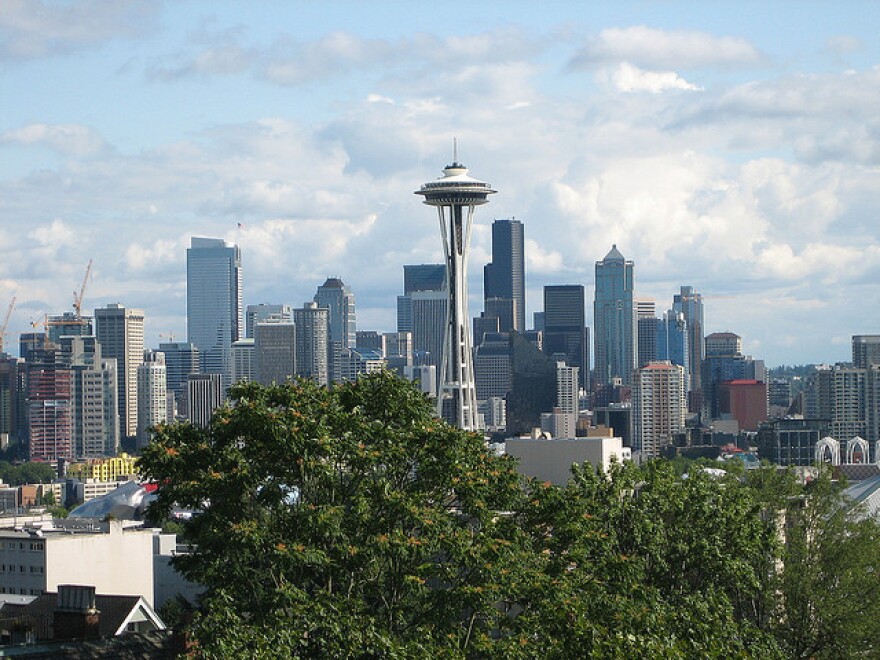Housing prices in metropolitan Seattle are rising by more than $5 an hour, every hour of every day, according to the Puget Sound Regional Council.
Prices keep going up because there’s a shortage of places to live.
On Thursday, the council's Growth Management Policy Board—the arm of the council that makes sure urban development doesn't sprawl—is holding an extended discussion on how it might be able to influence the housing supply.
The effort comes as the Puget Sound Regional Council begins discussions on its VISION 2050, a planning document that charts the broad course for growth in the region.
It also comes as planners digest a poll released in May showing that people say the cost of housing is the worst part of living in the region. It used to be traffic congestion.
So what can the growth policy board do about it? The board chair, Ryan Mello, said the board could increase pressure to develop transit-oriented housing, particularly along rail lines.
And when developers do build housing, should they be held to affordability requirements?
“Should it be highly encouraged, or should it be required, that a percentage of units in a new multi-family complex be affordable?” Mello asked.
The Puget Sound Regional Council has some leverage there—it hands out $500 million a year in transportation funding.
Individual cities like Seattle have been working on their own strategies to build more places to live and hit affordability targets.
Mello says that’s fine, but regional solutions can be better.
“Planning, coordinating, implementing at a regional level offers a much more efficient and effective way to tackle these complicated issues,” he said.


